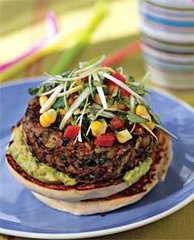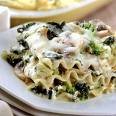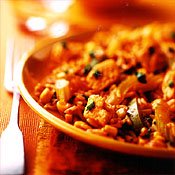My seven year old is a vegetarian. When she started her quest of avoiding meat we thought just cutting out meat itself would be enough, but it has become a journey of shocking, jaw-dropping discovery at just what contains ground-up animal parts. As a result, I am now a veggie. So I have gone from researching good recipes and nutritional information, which is essential for such a young vegetarian, to the family taking on a healthier, more compassionate outlook on life.
Wednesday, 25 April 2007
Religion, a vegetarian's option?
For both ethical and economic reasons, countless millions of people throughout the world live on a vegetarian diet.
A number of religions and beliefs have lent support to vegetarianism. Brahminism, Buddhism, Jainism and Zoroastrianism all advocated an abstention from flesh foods. More recently, the Seventh Day Adventists and The Order of the Cross have advocated a vegetarian diet and many Hindus and some Roman Catholic groups adhere to a vegetarian diet.
http://www.vegsoc.org/info/developm.html
Other religions have rules about what meat is acceptable to eat and as such have created foods which exclude these meats, therefore making them acceptable for vegetarians to eat.
Kosher
The word "kosher" is used to describe ritual objects that are made in accordance with Jewish law and are fit for ritual use.
There are certain rules which have to be adhered to, including:
certain animals may not be eaten at all. This restriction includes the flesh, organs, eggs and milk of the forbidden animals, however, all animals that have cloven hooves and chew the cud, are allowed to be eaten.
For those of a Jewish faith, to follow the Kosher laws, they used to avoid gelatine, as it was made from ground up pig skin, amongst other things. A kosher gelatine made from vegetable gums such as carrageenan combined with food starch from tapioca (which is also suitable for vegans) is commercially available in supermarkets which have substantial Kosher food sections. Recently, such products have come to be used in pre-packaged gelled fruit products, where animal-based gelatine was previously used.
Halal
Halal is a Quranic term which means allowed or lawful, so Halal foods and drinks are permitted for consumption by those of a Muslim faith.
However, Haram, also a Quranic term, means prohibited or unlawful, making Haram foods and drinks absolutely prohibited for Muslims to consume. These include animal fat, animal shortening, lard, bacon, collagen (pork), gelatine (inc Kosher gelatine) and pork.
For more information visit: http://www.cookeryonline.com/Vegetarian/halal.
This is good to know, so although not all Kosher or Halal foods are suitable for vegetarians, they do have foods within their religions which could be. This broadens which shopping aisles we can look at for vegetarian options.
A number of religions and beliefs have lent support to vegetarianism. Brahminism, Buddhism, Jainism and Zoroastrianism all advocated an abstention from flesh foods. More recently, the Seventh Day Adventists and The Order of the Cross have advocated a vegetarian diet and many Hindus and some Roman Catholic groups adhere to a vegetarian diet.
http://www.vegsoc.org/info/developm.html
Other religions have rules about what meat is acceptable to eat and as such have created foods which exclude these meats, therefore making them acceptable for vegetarians to eat.
Kosher
The word "kosher" is used to describe ritual objects that are made in accordance with Jewish law and are fit for ritual use.
There are certain rules which have to be adhered to, including:
certain animals may not be eaten at all. This restriction includes the flesh, organs, eggs and milk of the forbidden animals, however, all animals that have cloven hooves and chew the cud, are allowed to be eaten.
For those of a Jewish faith, to follow the Kosher laws, they used to avoid gelatine, as it was made from ground up pig skin, amongst other things. A kosher gelatine made from vegetable gums such as carrageenan combined with food starch from tapioca (which is also suitable for vegans) is commercially available in supermarkets which have substantial Kosher food sections. Recently, such products have come to be used in pre-packaged gelled fruit products, where animal-based gelatine was previously used.
Halal
Halal is a Quranic term which means allowed or lawful, so Halal foods and drinks are permitted for consumption by those of a Muslim faith.
However, Haram, also a Quranic term, means prohibited or unlawful, making Haram foods and drinks absolutely prohibited for Muslims to consume. These include animal fat, animal shortening, lard, bacon, collagen (pork), gelatine (inc Kosher gelatine) and pork.
For more information visit: http://www.cookeryonline.com/Vegetarian/halal.
This is good to know, so although not all Kosher or Halal foods are suitable for vegetarians, they do have foods within their religions which could be. This broadens which shopping aisles we can look at for vegetarian options.
Subscribe to:
Post Comments (Atom)
































No comments:
Post a Comment